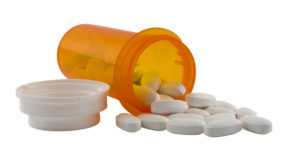 Controversy exists over whether healthy people should take statins because of possible side effects. This is another study finding a very elevated risk of new onset diabetes, high risk of diabetes complications, and obesity in statin users. This finding was also significant because the statins were given to healthy people (with no heart disease, diabetes, or severe chronic disease). Risks of diabetes, diabetes complications, and obesity were dose related. Statin users were also paired with similar non-statin users and then followed - thus the only differences between the 2 groups was whether they used statins. The researchers themselves write that when considering risks of statins, people should try for lifestyle changes (lose weight, eat healthy, exercise, stop smoking) rather than just rely on popping a pill. From Medical Xpress:
Controversy exists over whether healthy people should take statins because of possible side effects. This is another study finding a very elevated risk of new onset diabetes, high risk of diabetes complications, and obesity in statin users. This finding was also significant because the statins were given to healthy people (with no heart disease, diabetes, or severe chronic disease). Risks of diabetes, diabetes complications, and obesity were dose related. Statin users were also paired with similar non-statin users and then followed - thus the only differences between the 2 groups was whether they used statins. The researchers themselves write that when considering risks of statins, people should try for lifestyle changes (lose weight, eat healthy, exercise, stop smoking) rather than just rely on popping a pill. From Medical Xpress:
Strong statin-diabetes link seen in large study of Tricare patients
In a database study of nearly 26,000 beneficiaries of Tricare, the military health system, those taking statin drugs to control their cholesterol were 87 percent more likely to develop diabetes.
The study, reported online April 28, 2015, in the Journal of General Internal Medicine, confirms past findings on the link between the widely prescribed drugs and diabetes risk. But it is among the first to show the connection in a relatively healthy group of people. The study included only people who at baseline were free of heart disease, diabetes, and other severe chronic disease."In our study, statin use was associated with a significantly higher risk of new-onset diabetes, even in a very healthy population," says lead author Dr. Ishak Mansi.
In the study, statin use was also associated with a "very high risk of diabetes complications," says Mansi. "This was never shown before." Among 3,351 pairs of similar patients—part of the overall study group—those patients on statins were 250 percent more likely than their non-statin-using counterparts to develop diabetes with complications. Statin users were also 14 percent more likely to become overweight or obese after being on the drugs....The study also found that the higher the dose of any of the statins, the greater the risk of diabetes, diabetes complications, and obesity.
A key strength of Mansi's study was the use of a research method known as propensity score matching. Out of the total study population, the researchers chose 3,351 statin users and paired them with non-users who were very similar, at baseline, based on array of 42 health and demographic factors. The only substantial difference, from a research standpoint, was the use of statins. This helped the researchers isolate the effects of the drugs.
On a wider scale, looking at the overall comparison between the study's roughly 22,000 nonusers and 4,000 users, and statistically adjusting for certain factors, the researchers found a similar outcome: Users of statins were more than twice as likely to develop diabetes.The researchers examined patient records for the period between October 2003 and March 2012. About three-quarters of the statin prescriptions in Mansi's data were for simvastatin, sold as Zocor.
"I myself am a firm believer that these medications are very valuable for patients when there are clear and strict indications for them," he says. "But knowing the risks may motivate a patient to quit smoking, rather than swallow a tablet, or to lose weight and exercise. Ideally, it is better to make those lifestyle changes and avoid taking statins if possible."

 I am starting to read more and more negative comments from physicians and researchers about the big pharma and medical society recommendations for treating currently healthy people with
I am starting to read more and more negative comments from physicians and researchers about the big pharma and medical society recommendations for treating currently healthy people with